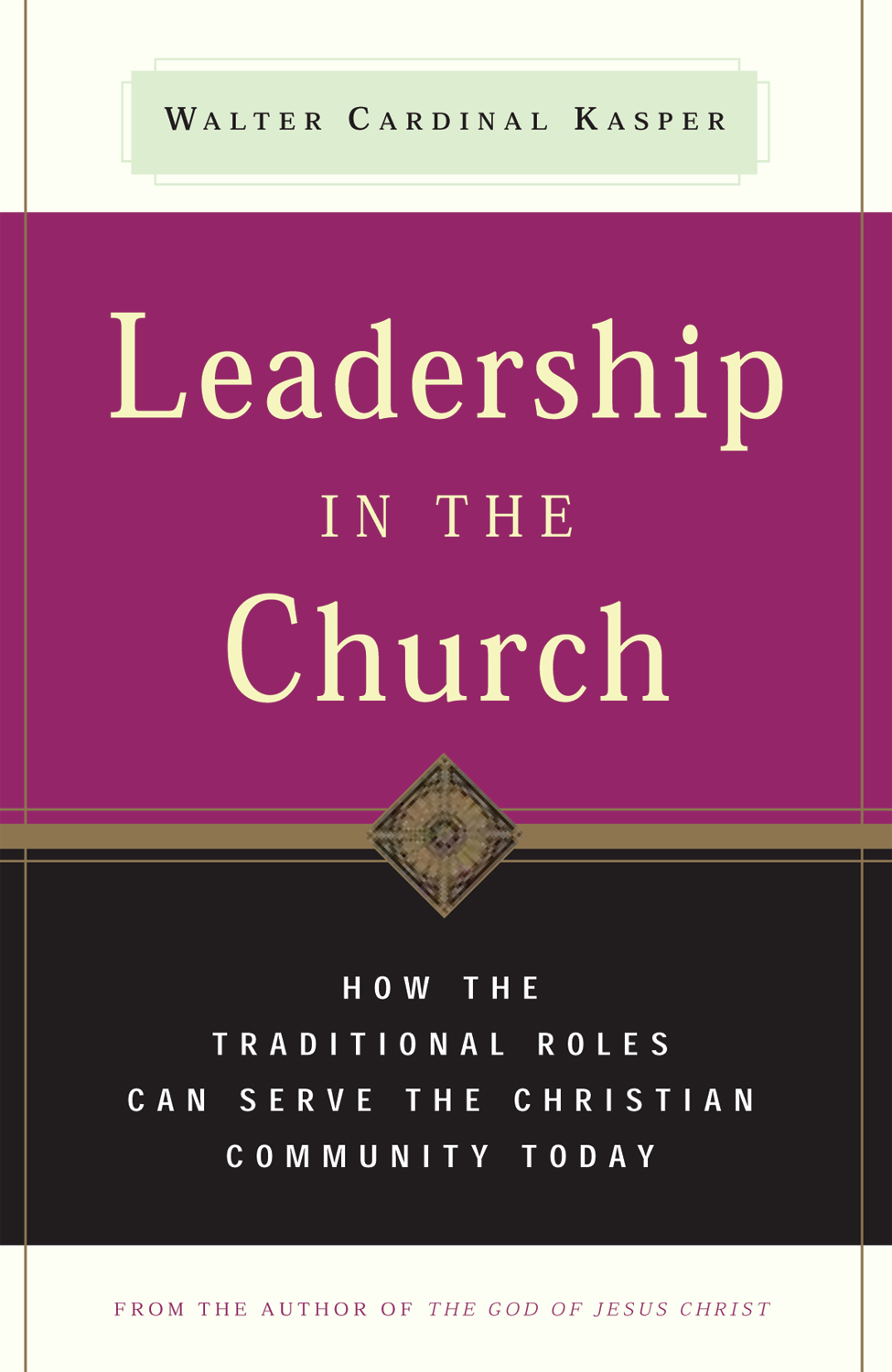- Title: Leadership in the Church
- Subtitle: How Traditional Roles Can Help Serve the Christian Community Today
- Page Count: 240
- Available Formats: Trade-paper (9780824599645), Cloth (9780824519773)
- Trim Size: 5.5 x 8.5
- Publication Date: 06/08/2018
- BISAC 2 : RELIGION / Christian Living/Leadership & Mentoring
- Original language: English
- Retail US: Trade-paper (24.95), Cloth (24.95)
- Retail Canada: Trade-paper (), Cloth ()
- Retail Canada: 33,95
- Review 1: "These significant essays from a noted German theologian, and now church leader, span more than a decade of publications available until now only in German. They provide an important insight into the ecclesiology and pastoral direction of this thinker, and give a keen insight into the pastoral, canonical, and theological debates in Germany, both Catholic and ecumenical. The author addresses some of the thorniest issues before the Church today: interpretation of canon law; the roles of bishop, priest, and deacon; ecumenical discussions on ordained ministry and the future of visible unity; and the well-known interchange with his colleague Joseph Ratzinger over the local-universal dimensions of the Church. The rich documentation gives a scientific support for essays which are often pastoral in tone and intent. The essay on canon law is a theological approach to interpretation subtitled 'The Normative Application of Justice and Mercy.' It does not deal with specifics, but rather develops the relationship of law to human salvation, the principles of equity and epikeia, and a legal culture inspired by the Gospel. It is an important reflective essay in service to the bridge between theology, the law, and pastoral practice. His discussion of the diaconate is set within the context of a theology of communion, with some concrete observations on contemporary practice. Kasper’s chapter on the priestly office has important theological as well as practical content. He explicates the theology developing from the council’s decree, emphasizing the representative character of this ministry in the Church. He expands the discussion of leadership, collaboration of the laity, and the sacramental nature of the Church in the context of the current decline of clergy and rise of lay leadership. He evaluates some of the models of lay and priest collaboration and points out some ecclesiological principles to assist in evaluating them. Of all the essays, this may be the most pastorally relevant in our United States context. Two chapters on the episcopacy have both pastoral and ecumenical implications. The first focuses on the internal Catholic ecclesiological renewal and situates the role of the bishop in the context of the new theology of communion, the spiritual, sacramental, and pastoral character of the episcopal office within the college of bishops. The second focuses on apostolic succession as an ecumenical problem. This is among the historically and theologically most profound in the volume. It was prepared for the German ecumenical working project on the condemnations of the sixteenth century, and consequently is rich in its magisterial, Reformation, and medieval documentation. Kasper attempts to develop an understanding of apostolic succession in the context of a theology of communion, drawing on patristic sources, that does not so narrowly focus on episcopal succession, yet makes a case for the episcopal college carrying an irreplaceable role in a Church where unity is restored. The methodology and hermeneutical principles embodied in this essay will be an important resource for understanding the ordained ministry and moving toward reconciling ministry in the divided churches. His other ecumenical essay is more analytical and programmatic for the whole ecumenical movement and represents a summary of positions on baptism, ecclesiology, the present turning point, and the irreversible commitments of the Catholic Church which have been expanded and further substantiated elsewhere. His recognition of the long term, but uncompromising character of the commitment of the Church, and the spirituality of hope and patience that it entails for her members, is an important component of Catholic ecumenical dedication and zeal. The essay on the universal Church and local church echoes the debates about the priority of the one or the other that are familiar to those who follow the ecclesiological literature and the voices of Catholic leaders. His more concrete and Thomistic position, advocating for the simultaneity of both local and universal over an interpretation which is more Platonic and speaks of the priority of the universal over the local, has serious pastoral implications, though these are not spelled out here in any great detail. We are fortunate to have these German essays gathered together in English. While they are all theologically informed and several very carefully crafted theological arguments, there are many pastoral resources here as well. As the ordained ministries, the ecumenical movement, and the roles of the laity in the Church develop, these essays will continue to be an important resource." —Jeffrey Gros, F.S.C., The Jurist: Book Reviews


